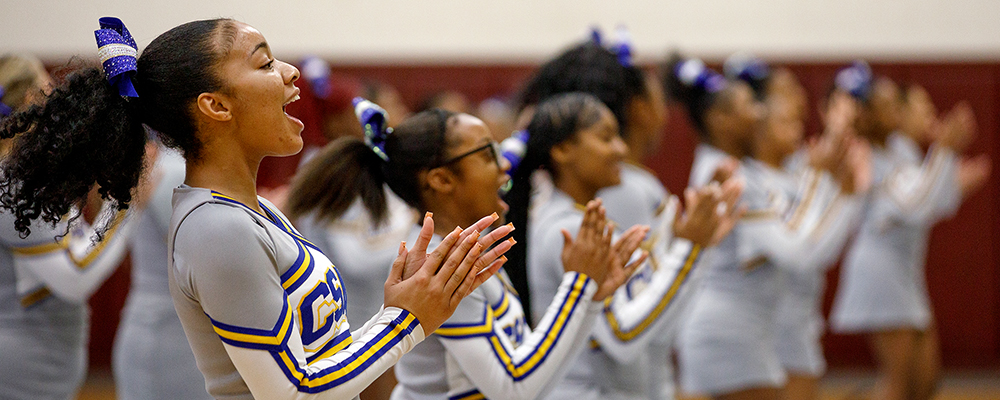
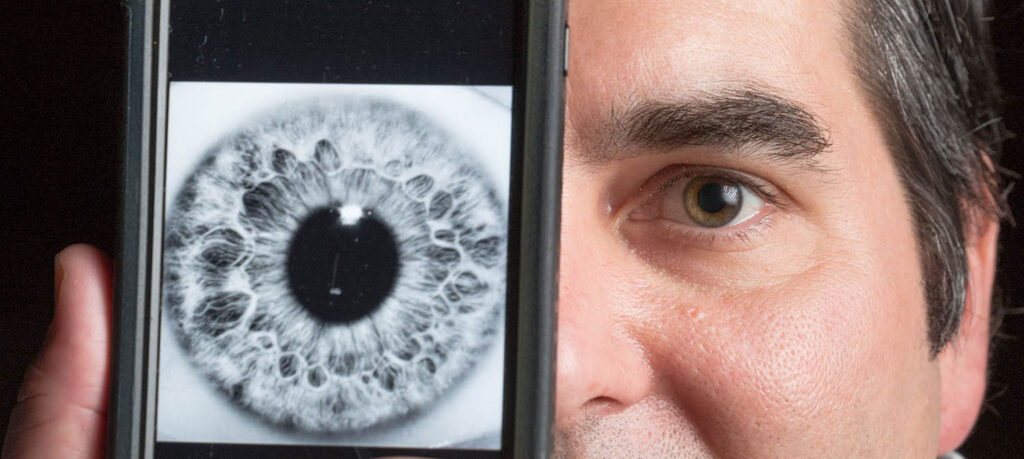
By Courtney Leeper
Soft sunlight shines through the glass walls of the Dean McGee Eye Institute (DMEI) in Oklahoma City. As the eye captures light and works with the brain to produce images of the surrounding world, so, in a way, does the Institute.
At DMEI, knowledge is generated through research and clinical trials much like the eye captures light. Instead of producing images, the research brings clarity to methods of preventing and treating eye disease. Just like the eye works with the brain, the Institute people – researchers, clinicians and surgeons – collaborate to help others continue to see the world around them.
In the early 2000s, research at the Dean McGee Eye Institute boomed. More space became a necessity, and a capital campaign was launched. In 2004, the Noble Foundation joined other donors to the campaign with a $1 million gift to help expand the facilities.
The result: these glass walls and the space to accommodate a vibrant world-class vision research program.
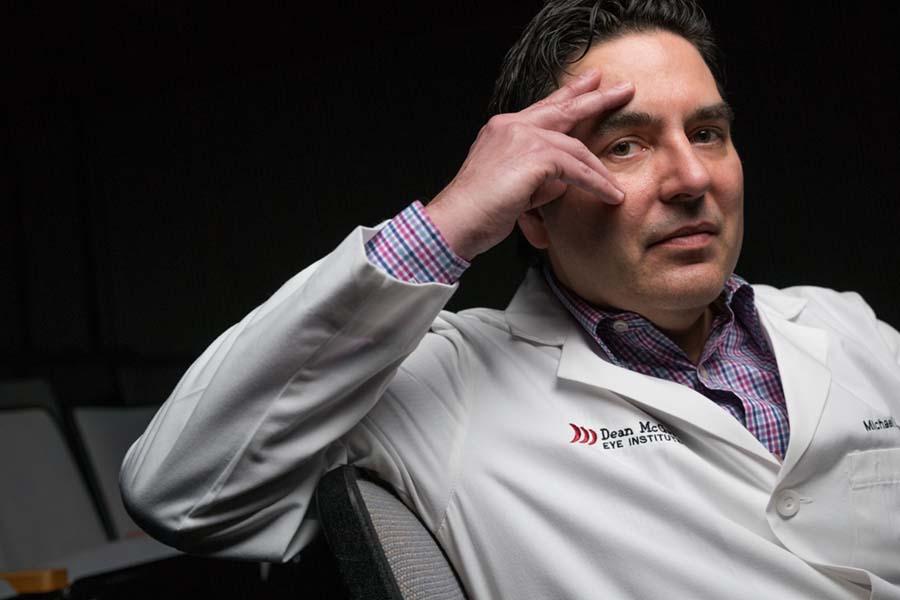
It didn’t take long for Michael Elliott to realize he needed to be in a laboratory with other vision science researchers.
Elliott stumbled upon eye research as a Ph.D. student at the University of Kansas in the 1990s. The laboratory in which he worked studied damage caused by oxidation in parts of the brain. A colleague at the time, who previously worked at the National Eye Institute, told him some of their research could be applied to the retina, the back-inside coating of the eye. Why not take a look, Elliott thought?
The more Elliott studied the eye, the more interested he became in the system and how the eye and brain partner to produce images. The lone eye researcher in the laboratory, Elliott buried himself in papers to learn more. He picked up on researchers’ names through these papers, then met the name bearers at national meetings of the Association for Research in Vision and Ophthalmology.
“It became quite clear to me that if I wanted to stay in this field, I needed to be part of a lab that specifically studies the eye,” Elliott said.
When the time came to apply for postdoctoral fellowships, the Dean McGee Eye Institute was at the top of his list because of a name that kept reappearing in the papers he had studied: Anderson, as in Robert E. “Gene” Anderson, M.D., Ph.D.
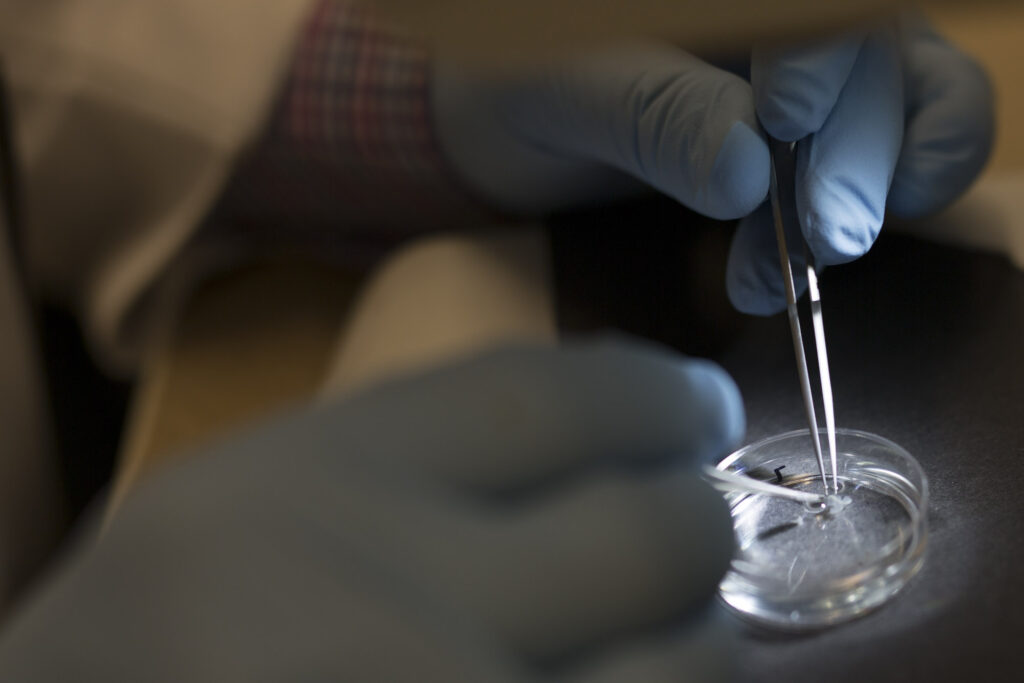
Research at the Dean McGee Eye Institute was gaining momentum in the early 2000s, thanks to several significant milestones still in play today, said Anderson, DMEI research director and Elliott’s mentor.
First was a grant from the National Eye Institute that enabled DMEI to provide core research facilities to its research staff.
Then, in 2002, the Institute received the prestigious NIH Centers of Biomedical Research Excellence (CoBRE) grant, which provided$1.5 million per year for 10 years to identify and mentor young researchers in vision science.
Elliott was selected for the program in 2007.
“The program was phenomenally successful,” Anderson said. “It launched the careers of seven young investigators.” All seven are now tenured or on tenure track and have won their own R01 funding, the gold standard in grants from NIH.
There was only one problem: space.
“As we became more successful, we were bursting at the seams,” Anderson said. “We were packed in ‘cheek by jowl.’”
Everyone, from junior to senior level, was sharing laboratory and office space. They were outsourcing clinical activity, which meant the researchers and clinicians couldn’t have a close relationship to connect molecular knowledge with real-world situations.
Though they had the funds and desires to expand research projects and add researchers, they didn’t have the room to accommodate anyone new.
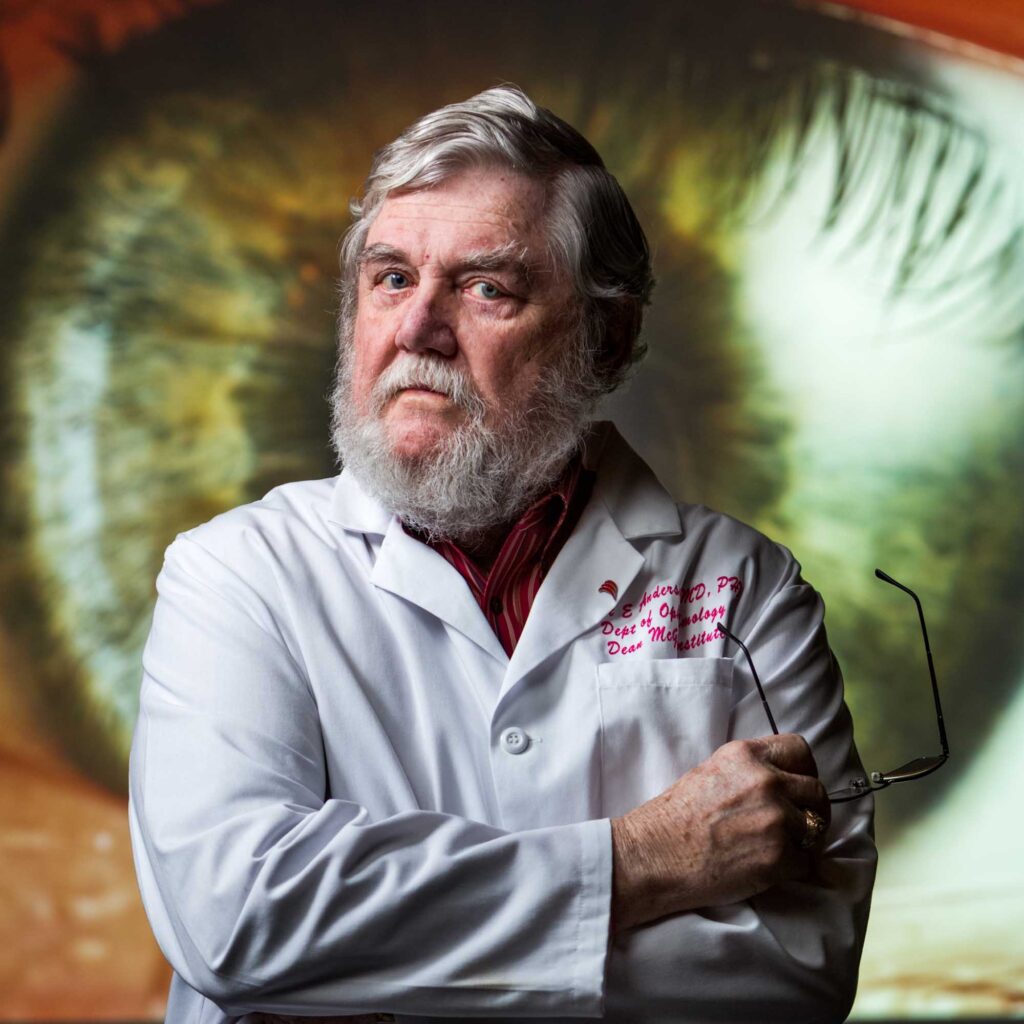
About a hundred miles south, the Noble Foundation had a long history of supporting DMEI. Since 1974, the Noble Foundation has awarded DMEI nearly $3 million in support for research, construction and renovations.
During this new era of growth and need in the 2000s, the Noble Foundation again stepped forward to help, providing its largest gift to date to DMEI: a $1 million contribution toward a facility expansion that doubled research space and expanded clinical programs by 40 percent.
“The Noble Foundation trustees value the Dean McGee Eye Institute’s vital contributions to science and quality of life for those struggling with eye problems,” said Mary Kate Wilson, Noble Foundation director of philanthropy, project management and engagement. “As stewards of a research institution themselves, they understand the importance of quality working facilities and were pleased to support this important project.”
Construction was completed in 2011, and the effect was immediately felt by the researchers. “It was tangibly huge,” Elliott said. “We went from everyone stumbling over each other to having enough space to bring in more people.”
Elliott’s lab space quadrupled, and for the first time he moved into his own office. The CoBRE-funded mentorship program provided him the funds and support he needed to kick-start his retina research, which has implications for understanding the mechanisms behind and treating vision loss from diabetes, glaucoma and macular degeneration. The building expansion provided the space he and the rest of DMEI needed to continue growing into the exciting research possibilities of the future.
“We are deeply grateful to the Noble Foundation,” said Gregory Skuta, M.D., president of the Dean McGee Eye Institute. “Their meaningful and consistent support over the past four decades has allowed us to deliver a profound, lasting impact on vision health.”
Stay up to date on all the ways the Noble Foundation is helping address agricultural challenges and supporting causes that cultivate good health, support education and build stronger communities.